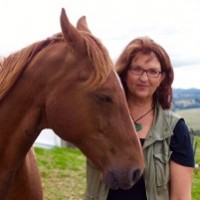Follow your bliss.
That’s a term I don’t recall hearing when I was a kid in school, but with more and more focus on encouraging children’s creative exploration, now more than ever, we have a generation motivated to live a life that fosters their passion—wide open to following their bliss.
Having worked with many families and also having bid adieu to several young adult children, it has become clear that supporting their creative success as young adults is just as important as supporting our youngsters’ creative endeavors while they are snuggled comfortably in the nest. After all, we just want to see our children succeed in finding their own personal just-right-life.
Many of our young adults are not rushing to embrace the traditional nine to five schema or look for a mate, but instead, travelling the world, developing mad-creative ideas, practicing their art and just creeping by financially.
Mine have done all of the above, which was very brave as well as anxiety provoking for them, and if I had gone frightened-control-freak-mama on them it would have certainly pulled a dark veil over their creativity.
Let’s assume your hatchlings are now out bliss-chasing in the wild and wacky world. Here are some top tips to help you be a supportive entity in your adult children’s creative lives:
Your anxiety is your responsibility.
Do not, I repeat do not call and 50-question your young adults about how they are doing every time your anxiety rears about your child’s choices. Anxiety is contagious through conversation. Inherently, your tone and concern will come across as second-guessing and lacking faith in their ability.
When your extreme anxiety is communicated to your young adult, it is shaken and stirred and turned into an ugly cocktail of resentment. Anxiety and resentment shut down creativity. Practice self-care to deal with your own fears and anxiety.
Have faith in your child’s abilities and creative dreams.
Communicate from a place of love and serenity and faith in your child. Even in the midst of screw-ups (other wise known as life lessons).
Sit with your concern before acting on your concern.
Concern about our children is inevitable. What we do with that concern is a choice. Choose wisely.
Be adults.
Ultimately, most of the stressful interaction in families, after children are grown, relates to all parties resorting to their respective parent/child method of communicating. The chapter is not included in the (non-existent) parenting handbook which describes the mindful work we all need to do to not fall back into negative or immature parent/child communication patterns with our adult kids.
Parents, and children alike, bode well by vowing to communicate with each other in a respectful and mature manner as we all inevitably age. If this is particularly difficult for you, try imagining yourself in conversation with the local friendly librarian and give your kids that kind of respectful space in conversations. Rarely would it be appropriate to tell Ms. Librarian what to do, when to do it or how she did it wrong.
Back off.
Remember that the most meaningful learning we have in our lives is when we bump our heads on an issue, be it failing to balance our check books or forgetting to put gas in the car or not paying a bill on time. We, as parents, do not want to take that learning away from our children. Nor do we want to come across as seeing them as incompetent by hounding them about all the things they “should” be doing, as if we see them as incapable.
No news is good news.
There’s a memo that hasn’t gone out as far and wide to young adult kids as need be: mom and dad do not need to know every last living time something is less than perfect in your life.
My usual response-mantra to my mom when I was 18 and out on my own was “everything is fine” even when everything was really really shit. I did not want to send out the invitation for her to worry even more excessively about me. That said—I love that my children are more open with me and feel comfortable telling me the less than pretty stories, usually, after they have come to a resolution. That feels like an adult to adult conversation and relationship.
The lesson for parents? With a decrease in parental probing you will find the self-reporting diminishes.
Listen.
Enjoy hearing about their creative journeys. Soak in the excitement that lies in their telling and the wonder of their exploration. Rest easy in the knowledge that if your child is following their bliss, they have won the jackpot—if everyone could be so lucky. And along with inevitable bumps that come with any life, they have landed where many of us parents feared to go. And you helped them get there.
Love elephant and want to go steady?
Sign up for our (curated) daily and weekly newsletters!
Author: Becky Aud-Jennison
Editor: Catherine Monkman
Photo: Author’s Own



Read 3 comments and reply